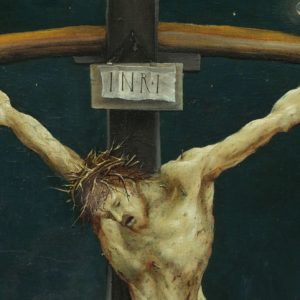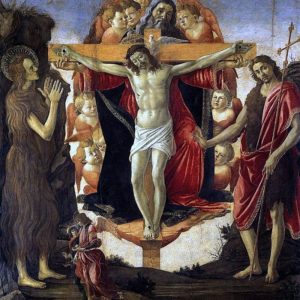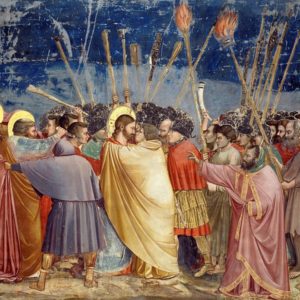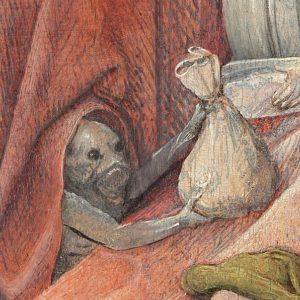In Mark 8:14-21, he says that the Apostles are in the boat with “one loaf,” yet they then protest that they have no bread. How can both of these details be true, and what is meant by the “One Loaf” in the bread with the Apostles?
Tag: Jesus
5 Radical Lessons Christ Reveals About the Kingdom of God
The idea of the “Kingdom of God” is absolutely central to the Christian Gospel. The first words out of the mouth of Jesus in St. Mark’s Gospel are “The time is fulfilled, and the kingdom of God is at hand; repent, and believe in the gospel” (Mark 1:15). St. Matthew says that Jesus “went about all Galilee, teaching in their synagogues and preaching the gospel of the kingdom and healing every disease and every infirmity among the people” (Mt. 4:23). And we pray for the coming of this Kingdom every time that we pray the Lord’s Prayer. So what do we mean by the “Kingdom of God,” and how should it impact our approach to the Church, to civil society, and to our own responsibilities?
A House of Prayer for All People
Why do Catholics call their Church the “Catholic” Church? Why not just call it the Christian Church? Is the Catholicity of the Church important? Is it Biblical? What does it even mean to say that the Church is “Catholic”?
What Does it Mean to Say That Jesus “Became Sin”?
St. Paul in 2 Corinthians 5 has an odd expression, in which he says that God the Father made Christ, who knew no sin, “to be sin.” What on earth does THAT mean?
Do Catholics Make Christianity Too Difficult?
A common complaint against Catholicism is that its view of the spiritual life is too difficult, that it over-complicates Christianity and doesn’t trust enough in the finished work of Christ on the Cross. That’s an appealing complaint, since it proposes a lighter, easier Christianity. But it’s a view we should be extremely suspicious of, given everything else we know about reality. So here are six observations that I think have some bearing on how we think of salvation specifically and the spiritual life more generally:
4 Things We Can Learn from the Apostle Judas
This Holy Week (and especially today, “Spy Wednesday”), it’s worth taking a closer look at the Apostle Judas Iscariot. Here are four things that we can learn from him.
(Why You Can’t Have) Jesus Without the Church
Contemporary Christianity is fond of pushing Jesus without the Church. Like its secular counterpart (in which people claim to be “spiritual, but not religious”), it’s an attempt to have the relationship without the rules. If I’m lonely or going through a tragedy, I can pray, but I don’t have to worry about fasting when I don’t want to, or being associated with a bunch of fellow believers that I look down upon.
But Jesus-without-the-Church is a rejection of Jesus.
Leonard Cohen, the Christ-Haunted
Among the singer-songwriters who emerged in the latter part of the 1960s, Leonard Cohen was something of an oddity: a musician with a disdain for secularism and a respect (and a yearning) for religion in general, and Jesus Christ in particular.
3 Surprising Lessons from Jesus’ Weirdest Parable
The weirdest and most troubling of Jesus’ parables is almost certainly the parable of the dishonest manager in Luke 16, in which Jesus presents a parable of a manager who, upon being fired, exploits his position to cut deals with his master’s clients so that he can try to leverage this into a job with them. Rather than being justly furious, the master *praises him* for his ingenuity.
What on earth is going on? Three things to keep in mind with this parable.
What if the Protestant Interpretation of John 6 is Correct?
Let’s talk about the Bread of Life discourse in John 6:22-70. The Catholic interpretation makes sense, but it’s a shocking one. We think that this lengthy passage is about the Eucharist, and that Jesus Christ literally means that we eat His Flesh and drink His Blood in Communion. This teaching, radical to twenty first-century ears, was no less radical to first-century ears, and even many of Jesus’ own disciples stopped following Him upon hearing it.
Protestants typically disagree with this interpretation, arguing that Jesus’ commands that we should eat His Flesh and drink His Blood are just metaphors. Often, both sides are so busy debating the credibility of the Catholic interpretation that neither stop to seriously ask, “Does the Protestant interpretation make any sense?” The obvious question is if Jesus is speaking metaphorically, what’s it a metaphor for? What is Jesus actually saying?









